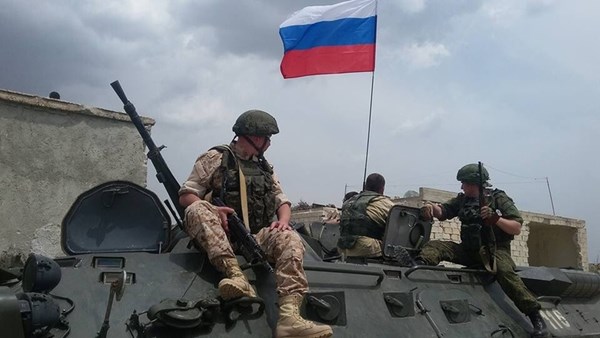Imminent pause in Russian offensive: Ukrainian Forces poised for counterattack
Russia's advance in Ukraine is nearing its climax, according to Kyrylo Budanov, head of Ukraine'sMilitary Intelligence Directorate (GUR). He forecasts the active phase of the conflict to last no more than two months and says that the war in 2024 will be markedly different.
The situational successes of Russian forces in the Pokrovsk direction are proving costly. Russian troops are following Kremlin's orders rather than developing an effective strategy. Events in the Kursk region have further divided the front.
Despite maintaining offensive capabilities in Ukraine, Russia's military might is not limitless. According to Budanov, a pause is imminent, after which the Ukrainian Forces will gain the initiative on the battlefield. He believes Russia can maintain its offensive for a maximum of one and a half to two months.
Drawing from decade-long experience since 2014, Budanov asserts that neither side can maintain intense assaults for more than two consecutive months. He notes the ongoing Russian offensive has lasted three months, but a pause of up to five months looms ahead.
"We know new attempts by the enemy will follow the lull, and we are preparing for that," emphasized Budanov.
Analysts from the American Institute for the Study of War (ISW) share Budanov's outlook. They observe that Russian forces squander material and human resources across the war's theater, including the Donetsk region.
The costly tactical gains in the Pokrovsk direction suggest there will be no new offensive operations in the summer of 2024, due to constraints. Moving into densely built urban areas east of Pokrovsk will likely stall Russian advances, ISW hopes.
Russian summer offensives, characterized by mechanized assaults, lead to substantial losses in armored vehicles over small front sections. This burden exacerbates the strain on Russia's military, pushing their active efforts toward culmination, specialists conclude.
Even the largest and most capable military organizations can't advance indefinitely. Russia’s window of opportunity may soon close, as its reserves of military equipment wane. Moscow will have no choice but to halt its offensive and regroup, argues retired Australian Army Major General Mick Ryan in an interview with Foreign Affairs.
Kyiv must plan strategically to capitalize on Russia's impending decline. This won't be easy, given the uncontrollable factors, such as when and where Russian forces reach their offensive climax, and the certainty of continued Western support, he notes.
Military expert Pavel Narozhny concurs with earlier prognoses in an interview with Focus. He points out that Russia's human resources are gradually depleting, evidenced by the near-unopposed breakthrough in the Kursk region. Effective border defense isn’t indicated by air strikes, considering aircraft might be repositioned from other bases.
If Ukraine acquires 30-40 F-16 aircraft, Russian air forces will face significant pressure. The impact of guided aerial bombs on front-line positions will decrease considerably, Narozhny shares.
Narozhny also notes significant shortages in Russian armored vehicle supplies. Few attempts are being made to breach Ukrainian defenses using such equipment, and advanced tanks and armored vehicles are limited in the Kursk direction.
Throughout the fall-winter period, Russia will focus on fortifications, recruiting, and identifying weak spots in UAF defenses. Initially, Moscow hoped for a major breakthrough during the 2024 summer campaign, but UAF’s defensive lines have held. The onset of the "Kursk special operation" has forced the Kremlin to reconsider their strategy, explains Dmytro Zhmaiilo, Executive Director of the Ukrainian Center for Security and Cooperation, to Focus.
Donetsk and Luhansk regions remain areas of priority. However, how they will react to breakthroughs on their own territory remains a question.
What's happening in Kursk is only the beginning of unconventional military operations in 2024. Russia's high command faces a strategic dilemma: Continue offensives in Donbas or neutralize internal threats within Russia, says Mykhailo Samuys, Deputy Director of the Army, Conversion and Disarmament Studies Center.
Samuys asserts Russians will probably err by maintaining their attacks on Donbas. Kursk and southern developments will worsen for them due to many errors. Occupiers are driven by Kremlin’s political goals rather than military necessity. If Putin demands the occupation of Donbas by the end of 2024 at any cost, the invaders will storm ahead despite heavy losses, he explains to Focus.
Considering current military realities, the expert anticipates an extension of active battles in Donbas. However, Ukraine has seized the initiative, with future success hinging on several UAF operations. Unconventional maneuvers on various fronts will destabilize Russian defenses, forcing them to remain entangled in Donbas, preventing rapid troop deployments to other areas.
In 2022, the UAF executed a feint maneuver. Then, Russians became bogged down in Donbas with superior resources, leading to UAF liberating Kharkiv and parts of Kherson regions. The scenario now is different, but shares similarities, Samuys concludes.
Further action continues in Russia's Kursk region. The frontlines may have expanded to cover 430 square kilometers in just three days.
